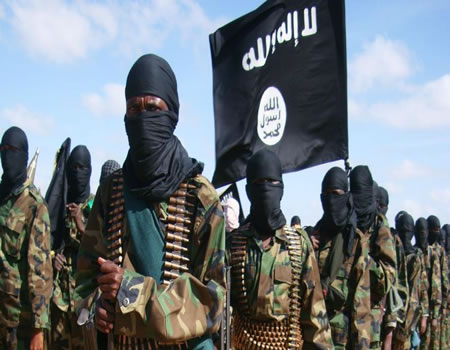ON January 15, five men armed with guns and explosives burst into the DusitD2 hotel complex in Nairobi, Kenya. The attackers set off explosions and gunfire on guests in the complex which houses several bars, restaurants, offices and banks. An assailant carried out a suicide attack in the hotel’s foyer, while other assailants forced their way inside the hotel and fired on hotel guests with automatic weapons, killing at least 21 persons in an attack that lasted for hours.
Al-Shabab, an armed group based in Somalia and fighting to topple the Western-backed Somali government, claimed responsibility for the attack. The group, which wants to impose a strict version of Islamic law in Somalia, used to control most parts of south and central Somalia, but since 2010, the fighters have been expelled from most major towns as the United States military and a 20,000-strong African Union peacekeeping mission boosted the Somali forces. It will be recalled that the armed group has carried out several attacks in neighbouring countries, including Kenya, since the government of Kenya launched a military operation inside Somalia in 2011. In a major operation in September 2013, al-Shabab fighters stormed Nairobi’s Westgate Mall, firing indiscriminately at shoppers and killing 67 people in a siege that lasted for 80 hours. They also hijacked a bus and attacked the Garissa University College in Kenya, killing over 160 persons in both incidents.
The latest carnage shows the limited intelligence and timely response capability of the Kenyan security services. There are reports that the authorities were warned that al-Shabab was planning terrorist attacks on high-profile targets around Christmas and the New Year. The Kenya authorities had put the country on high alert since November 2018. But the terrorists were undeterred. Thus, the relative success of the attack demonstrates that al-Shabab still has capacity to carry out spectacular acts of bloodshed in the country.
Once again, the Kenyan government has shown that it is difficult for an African country to defend itself against attacks because the governance institutions are weak, with adverse effects on the security agencies. The persistence of terror groups and threats of attack call for renewed seriousness in the efforts to strengthen governance. The issues are not about physical security and safety alone. They touch on the capacity of the government to uplift living conditions and respect the dignity of citizens. Counter terrorism relies on intelligence and security consciousness among citizens. When governments are unable to guarantee the basic needs of the majority of their citizens, the social legitimacy of the state is eroded. This has grave implications for state security and the vulnerability of citizens to forms of radicalisation.
Nigeria has struggled to deal with the menace of Boko Haram. Al-Shabab has been linked to the training of Boko Haram. Both al-Shabaab and Boko Haram share an ideology that is embedded in radical Salafism and their members see the overthrow of secular government as justified since their rulers are viewed as accepting or leaning towards the ways of Islam’s enemies.
We sympathise with the peoples and government of Kenya. We share the grief of the families of the victims of the latest attack, wherever they may be around the world. We hope that African governments faced with the problem of terrorism and insurgency leave no stone unturned in addressing the governance deficits in their societies. Dealing with terrorism requires improving “non-kinetic, coordinated response that fuses domestic, regional and international strategies along the lines of diplomacy, development, and demilitarisation.”
The defeat of al-Shabab, Boko Haram and similar organisations is going to be a long haul. African leaders must be prepared to give it what it takes, including making government more responsive and responsible to citizens.






